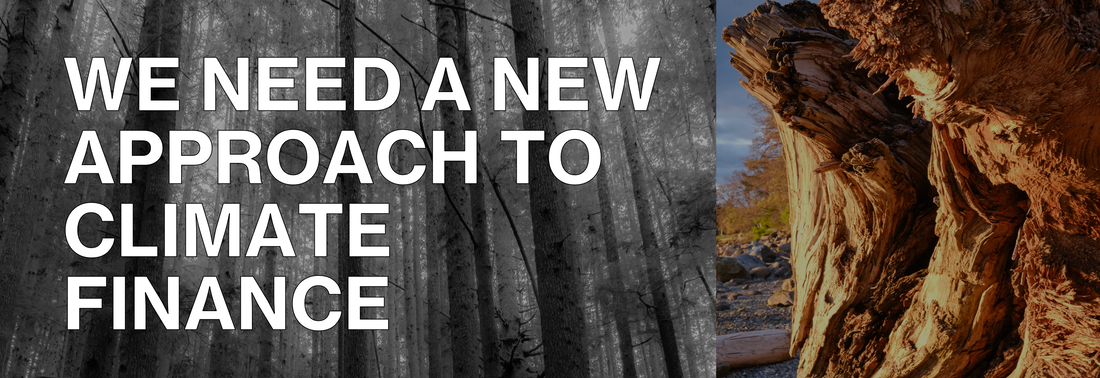|
About a year ago I returned to the world of climate finance and was shocked to find two glaring inconsistencies. There was a significant amount of capital going into the market (with more to come) and, more critically, that the old approaches to financing critical climate projects hadn’t changed in decades. These two trends are incompatible, and without a new approach to climate finance, I worry we will not be able to realize the potential, and the necessity, of funding our climate transition. Especially concerning is the lack of institutional investment in the market, the lack of which creates significant volatility in carbon prices, reduced trust in climate solutions, and significant risk throughout the value chain.
This is the start of a multi-part narrative on how our approach to finance needs to change. In it, we will explore a range of issues, such as the lack of trust in the carbon market, the market’s approach to risk, the quantity-vs-quality problem in funding carbon offsets, new asset management approaches, the industry’s myopic focus on co-benefits, why thematic approaches to climate finance create more problems than they solve, why we may not want to be so enthusiastic to regulation and standards in carbon, integrated approaches to financing the offset market, the role of technology and AI, why net-zero isn’t the panacea we think it is, and ultimately how we can make changes today to bring more institutional investment to climate finance. The goal of these narratives is to start a global conversation on these issues and explore new ways to approach climate finance, ultimately bringing more institutional capital to bear on our most pressing global climate problems. Creating a “village” around this issue is essential - it’s one of the reasons I joined with a small group of investors to create Canoe Carbon, a firm that promotes large-scale investment in the carbon offset market by introducing innovative financing models that help isolate investors from the regulatory and project risks inherent in traditional carbon offset investment - using technology, artificial intelligence, and research as a foundation. I hope to explore these areas with you over the coming months and will be engaging with colleagues from around the market though various mediums to explore solutions to these problems. I’m genuinely excited to be focused on climate finance again – matched only by my concern and, at times, panic that we are not moving quickly enough to solve the climate crisis that is already at our doorstep. I hope you will join me in this dialogue, and I welcome your engagement. I continue to believe that investors, in all forms, are the fulcrum upon which we will succeed or fail to meet the climate challenge. There are significant opportunities for investors out there, and there has never been a better time to finance climate projects – the key is finding the right ones and avoiding the bulk of the projects out there that carry unnecessary risk. Through this dialogue we’ll explore how we got here, what’s missing from the market, and explore some ideas on what to do next. Next, we’ll explore how the lack of trust in the carbon offset market came about, and its impact on the industry at large. Look for that in my next instalment of this blog, and I’m looking forward to embarking on this journey with you.
0 Comments
Leave a Reply. |
Subscribe! |



 RSS Feed
RSS Feed